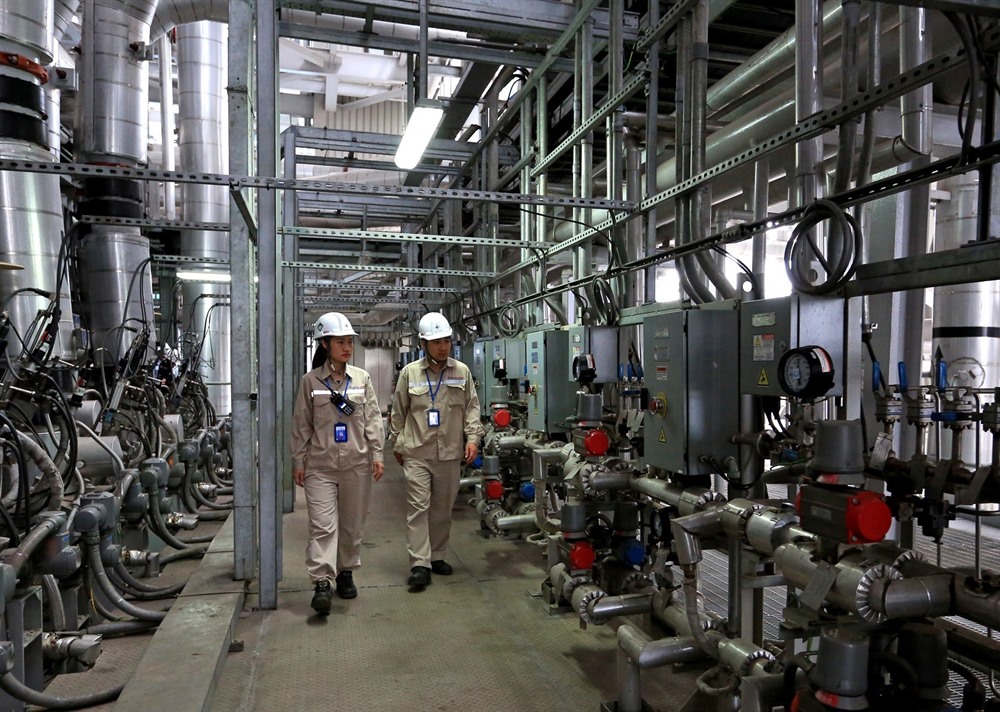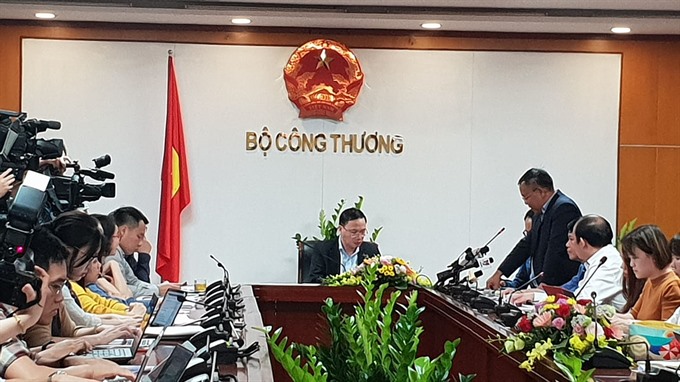 Economy
Economy

The average retail price for power was raised by 8.36 per cent on Wednesday, according to the Ministry of Industry and Trade (MoIT).
 |
| Engineers inspect the Thái Bình thermal power plant in the northern province of Thái Bình. The average retail price for power was raised by 8.36 per cent on Wednesday. — VNA/VNS Photo Ngọc Hà |
HÀ NỘI — The average retail price for power was raised by 8.36 per cent on Wednesday, according to the Ministry of Industry and Trade (MoIT).
The hike means that electricity bills have risen from VNĐ1,720 (7.49 US cents) per kWh to VNĐ1,864 (8.03 cents), excluding VAT.
Different pricing schemes have also been set for households and businesses. Specifically, retail prices for households now range from VNĐ1,678 per kWh to VNĐ2,927 per kWh depending on usage.
Poor households would still receive support equivalent to 30 kWh per month.
Power tariffs for businesses and industrial zones are now divided into two levels: VNĐ3,076 per kWh for peak hours and VNĐ970 per kWh for off-peak hours.
Nguyễn Anh Tuấn, head of the MoIT’s Electricity Regulatory Authority of Việt Nam (ERAV), said the increase was based production costs in 2017 calculated by Việt Nam Electricity (EVN).
MoIT and the Ministry of Finance had reviewed input costs for electricity production including coal and gas prices as well as interest rate differences in EVN’s foreign currency-denominated debts.
“The increase was approved by the Government,” he added.
 |
| The Ministry of Industry and Trade announced the power retail increase. — VNS Photo Vũ Hoa |
Đinh Quang Tri, EVN’s deputy general director, said the group expected to collect over VNĐ20 trillion from the power tariff increase. That money would be used to buy coal and pay gas suppliers and power plants.
“We are almost an intermediary collecting money and paying coal and gas suppliers and power plants,” Tri said.
EVN would have to pay VNĐ7 trillion to coal suppliers, VNĐ6 trillion to gas suppliers and VND3.8 trillion for the exchange rate difference.
The total payment would reach VNĐ21 trillion, meaning EVN would suffer a shortfall of VNĐ1 trillion after paying its partners.
He added the group had resolved VNĐ4.5 trillion in 2018 from exchange rate differences thank to its profits.
He added that the power tariffs were transparent as the ministry had published information about foreign exchange rates and coal and gas prices on its website.
It also conducted checks on EVN’s electricity production costs every year to ensure transparency.
According to calculations by the MoIT and General Statistics Office, the hike would reduce GDP by 0.22 per cent and increase CPI by 0.29 per cent. — VNS




